12 Dividend Aristocrats You Can Buy at a Discount
2022's broad-market selloff has sparked a fire sale on several Dividend Aristocrats, allowing investors to pick up some of Wall Street's most elite income plays at bargain prices.


Profit and prosper with the best of Kiplinger's advice on investing, taxes, retirement, personal finance and much more. Delivered daily. Enter your email in the box and click Sign Me Up.
You are now subscribed
Your newsletter sign-up was successful
Want to add more newsletters?

Delivered daily
Kiplinger Today
Profit and prosper with the best of Kiplinger's advice on investing, taxes, retirement, personal finance and much more delivered daily. Smart money moves start here.

Sent five days a week
Kiplinger A Step Ahead
Get practical help to make better financial decisions in your everyday life, from spending to savings on top deals.

Delivered daily
Kiplinger Closing Bell
Get today's biggest financial and investing headlines delivered to your inbox every day the U.S. stock market is open.

Sent twice a week
Kiplinger Adviser Intel
Financial pros across the country share best practices and fresh tactics to preserve and grow your wealth.

Delivered weekly
Kiplinger Tax Tips
Trim your federal and state tax bills with practical tax-planning and tax-cutting strategies.

Sent twice a week
Kiplinger Retirement Tips
Your twice-a-week guide to planning and enjoying a financially secure and richly rewarding retirement

Sent bimonthly.
Kiplinger Adviser Angle
Insights for advisers, wealth managers and other financial professionals.

Sent twice a week
Kiplinger Investing Weekly
Your twice-a-week roundup of promising stocks, funds, companies and industries you should consider, ones you should avoid, and why.

Sent weekly for six weeks
Kiplinger Invest for Retirement
Your step-by-step six-part series on how to invest for retirement, from devising a successful strategy to exactly which investments to choose.
The S&P 500 just wrapped up its worst first-half performance since the Nixon era, with shares ending down more than 20% for the six-month period. Few areas of the market were spared; but, fortunately, investors can look to the Dividend Aristocrats to help cushion the blow – and now, they can get some of these elite income plays on the cheap.
The Dividend Aristocrats are a group of 65 S&P 500 dividend stocks that have increased their cash distributions for at least 25 years in a row. And when equity markets are in turmoil, investors tend to shift towards more defensive strategies in an effort to help preserve wealth. One of the best safe havens for investors can be found with the Dividend Aristocrat stocks, which are noteworthy for their resilience and steady income.
The defensive characteristics of Dividend Aristocrats is evidenced by their proven ability to outperform other stocks during market downturns. During the 2008 market crash, for example, S&P 500 stocks lost 37% of their value, but the Dividend Aristocrats declined only 22%.
Similarly, during the 2002 bear market, when the S&P 500 stocks dropped 22%, Dividend Aristocrat stocks fell less than 10%. In every major stock market correction since 1990, Dividend Aristocrats have limited downside risk by posting smaller losses than the S&P 500.
Of course, not all Dividend Aristocrats are created equal. During every bear market, there will be a handful of these stocks that underperform the broad market. These Dividend Aristocrats, many of which are trading at deep discounts to their historic valuations, offer a rare opportunity for investors to capture the compounding power of steadily rising dividends at a lower share price.
Here are 12 Dividend Aristocrats that are bargain-priced at the moment. To curate this list, we looked for stocks that are down at least 25% for the year-to-date versus the S&P 500's roughly 20% decline. A few of these stocks are trading at values as much as one-third lower than their 2021 closing price.
Data is as of July 6. Dividend yields are calculated by annualizing the most recent payout and dividing by the share price. Stocks are listed in reverse order of dividend yield.
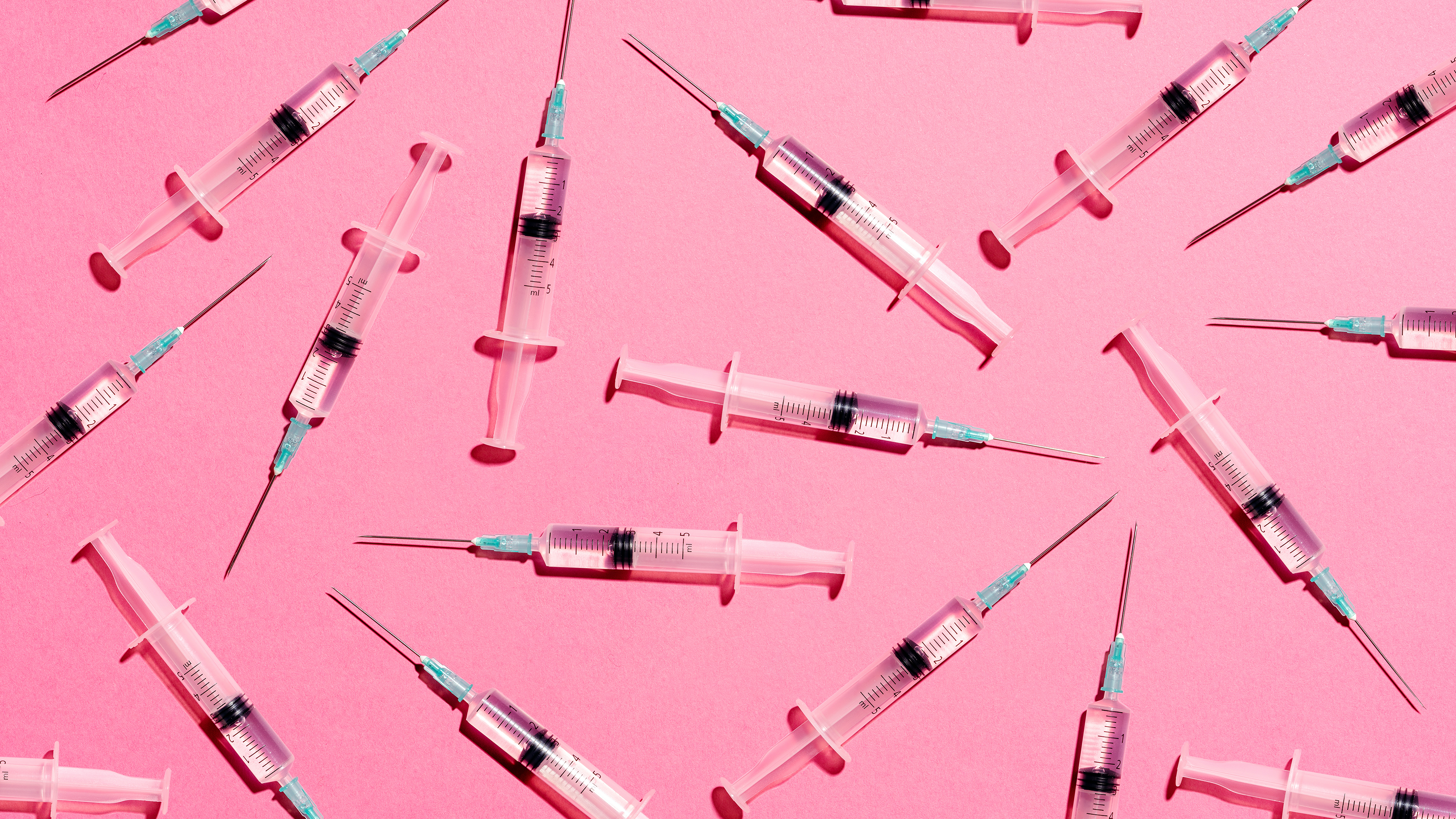
West Pharmaceutical Services
- Market value: $23.4 billion
- Dividend yield: 0.2%
- Consecutive years of dividend increases: 29
West Pharmaceutical Services (WST, $315.55) is one of the newer Dividend Aristocrats on the Street, having been added to the list in January 2021.
WST manufactures vials, syringes and other packaging components and delivery systems used for injectable medications. The company produced nearly 45 billion drug delivery devices in 2021.
West Pharmaceutical Services became a triple-digit grower during the pandemic when demand for its drug delivery devices surged. But the company has been a quiet but steady performer over longer periods. Since 2017, in fact, sales have averaged 15% annual growth, while adjusted EPS have risen 32.5%, on average, annually.
The company operates from 50 locations worldwide and has 25 manufacturing sites. It generates 45% of sales in Europe, 45% in the Americas and 10% in Asia Pacific.
A rising percentage of sales from higher value product components bodes well for WST's future earnings growth. West Pharmaceutical Services also recently introduced new packaging solutions for sensitive biologics and self-injection that help maintain its competitive edge.
Another growth catalyst could come from the company's expanded relationship with Corning (GLW). This involves a multi-million collaboration to develop new, more advanced pharmaceutical packaging solutions.
WST generated 11% organic revenue growth and 12% adjusted earnings per share (EPS) gains during the March quarter and also upped its full-year guidance. Sales in its proprietary products segment grew by double-digit amounts during the quarter, as did revenue in its biologics division.
This company has raised dividends 29 years in a row, with the most recent increase of 6% occurring in October. With payout at a meager 8% and the current dividend yield a fraction of West Pharmaceutical's fellow healthcare stocks, many investors anticipate bigger dividend hikes in the future.
WST shares earn Buy or Strong Buy ratings from four of its seven Wall Street analysts. And following the stock's nearly 33% year-to-date decline, it is now trading at 33.9 times forward earnings – a 24.5% discount to its five-year average.

S&P Global
- Market value: $118.6 billion
- Dividend yield: 1.0%
- Consecutive years of dividend increases: 49
S&P Global (SPGI, $349.02) is one of the big three credit rating companies, along with Moody's (MCO) and Fitch.
In addition to being a leading provider of credit ratings, related research and analytics, SPGI is the largest domestic index provider, supplying a wide variety of financial benchmarking tools, and a leading gatherer of market intelligence and analytics through its Capital IQ business unit. The company's revenue mix is 49% ratings, 14% indices and 27% market intelligence. Its Platts commodities data business accounts for the remaining 11%.
In February, S&P Global closed a $44 billion all-stock merger with IHS Markit, a leading provider of analytics to government and business customers, including 80% of the Fortune 500 companies. The merger is expected to generate $350 million of annual revenue synergies, $600 million of cost synergies, be accretive to EPS by 2023 and, perhaps most importantly, shift S&P Global's business mix to 75% recurring revenues.
Post-merger, the company was guiding for 40% revenue growth in fiscal 2022 and roughly 14% adjusted EPS gains. However, guidance was suspended in June due to weakening market conditions in S&P Global's ratings business.
The company indicated it still expects to generate $5 billion of free cash flow – the money left over after a company has covered the capital expenses needed to expand its business – this year with a targeted dividend payout ratio of 20%-30% of adjusted EPS. S&P Global also recently approved a 10% dividend hike and a $12 billion share repurchase program.
Dividends have risen 49 years in a row and 15.5% annually over five years. Payout is an ultra-low 23%, suggesting the current dividend is easily maintained.
The Dividend Aristocrat has not been immune to broad-market headwinds, with SPGI shares down 26% in 2022. It's currently trading at 1.5 times its forward PEG (price/earnings to growth), which is a nearly 21% discount to its five-year average.
Still, Barclays analyst Manav Patnaik said in June that he prefers SPGI over MCO due to cost synergies the company will realize from the IHS Markit merger and its aggressive share repurchase program. And Morgan Stanley made SPGI its top business services sector pick in May, citing the firm's widening competitive moat, leading market share and strong margins as reasons to own shares. What's more, SPGI is a top stock pick among billionaire investors.

Sherwin-Williams
- Market value: $63.1 billion
- Dividend yield: 1.0%
- Consecutive years of dividend increases: 43
Sherwin-Williams (SHW, $242.74) is the industry leader in paints, coating and related products. Its familiar brands include Valspar, Dutch Boy, HGTV, Krylon, Minwax and many others.
The company operates across three business segments: The Americas Group owns more than 4,800 specialty stores mainly across North America, catering to contractors and DIY customers; The Consumer Brands Group handles product manufacturing, development and distribution; and The Performance Coatings Group specializes in industrial coatings for wood finishing, automotive and marine applications.
SHW expanded its presence in coatings for heavy equipment this year via the acquisition of Gross & Perthun, a German company that generates approximately $50 million in annual sales. The deal is expected to close during the September quarter.
Sherwin-Williams has been a reliable performer that has generated average annual growth of 11% in sales and 10% in EPS over the last five years.
While sales in the company's March quarter rose 7.4% – fueled by strong demand in the performance coatings group – adjusted EPS dropped 21.8% due to raw material cost inflation that was only partly offset by price increases.
For all of 2022, Sherwin-Williams is guiding for high-single-digit to low double-digit sales growth and adjusted EPS ranging from $9.25-$9.65. This will mark a 16% increase over last year's results, when supply-chain disruptions dampened earnings.
Credit Suisse analyst John Roberts downgraded the materials stock – which is off 31% for the year-to-date – to Underweight (Sell) in May, citing his expectations that demand for paint would drop as interest rates rise. However, Morgan Stanley strategists recently recommended SHW shares on their list of stocks thought to be insulated from recession risk and likely to revise EPS upward going into 2023.
Sherwin-Williams has increased dividends 43 years in a row, including a 9% hike in February. The five-year annual dividend growth rate is even better, at 15%. Plus, payout is less than 30%, which suggests no difficulty maintaining the higher dividend even if EPS softens in 2022.
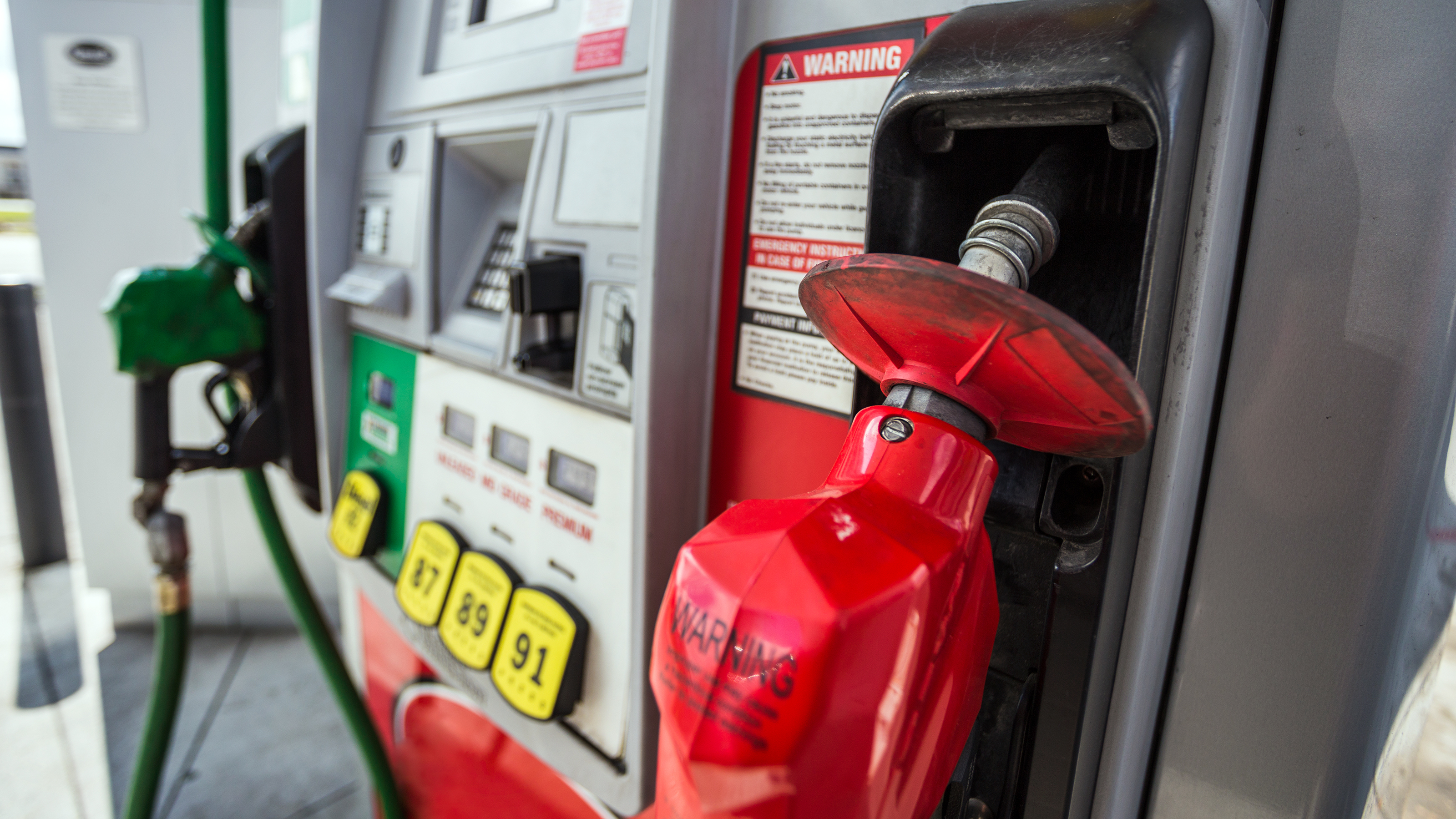
Dover
- Market value: $17.6 billion
- Dividend yield: 1.6%
- Consecutive years of dividend increases: 66
Dover (DOV, $122.08) is a diversified industrial manufacturer and technical solutions provider generating $8 billion in annual revenues. The company delivers equipment and components, as well as software and digital solutions through five operating segments. These include engineered products, clean energy and fueling, imaging and identification, pumps and process solutions, and climate and sustainability technologies.
Reflecting the benefits of its diversified business mix, Dover has delivered 4% annual organic revenue growth, 16% annual adjusted EPS gains and 13% yearly rises in free cash flow growth over four years. Even more impressive is DOV's dividend track record showing 66 consecutive years of payout increases, which makes it one of the best Dividend Aristocrats out there.
Dover supplements organic growth with acquisitions that expand its footprint and accelerate its top and bottom lines. The company's latest acquisition is of Malema Engineering, a manufacturer of flow measurement instruments serving customers in the biopharma, semiconductor and industrial markets. The deal is expected to add $45 million to Dover's annual sales and will greatly expand its biopharma product offerings.
In the March quarter, Dover grew sales 10% and adjusted EPS by 5%, beating analysts' consensus estimates. The company is guiding for 8%-10% revenue growth and a roughly 12% increase in adjusted EPS this year.
Analysts are upbeat toward the industrial stock, too. In April, Goldman Sachs recommended DOV on its list of companies having the best pricing power. According to David Kostin, chief U.S. equity strategist, pricing power becomes critical in times of inflation by enabling companies to maintain strong margins.
Dover shares are down 33% year-to-date and were recently valued at 14.3 times forward earnings – a 25.5% discount to the stock's five-year average. And dividend growth is respectable at 7% annually over five years, while payout appears easily sustainable at a modest 25.8%.

Pentair
- Market value: $7.8 billion
- Dividend yield: 1.8%
- Consecutive years of dividend increases: 46
Pentair (PNR, $46.90) is a leading provider of water treatment solutions including filtration products, pressure tanks, control valves, pool equipment and accessories and other products to residential and commercial customers. The company generated $3.8 billion of sales last year and has operations in 30 countries.
Secular trends benefiting the company's pool business include population migration trends favoring warmer climates, a large installed base and a movement toward more energy efficient pools.
The company also derives approximately 70% of pool-related revenues from replacement and aftermarket business, which gives stability to this segment. Pentair's water treatment business is benefitting from new connected digital technologies and a post-COVID recovery in industrial and food service demand.
PNR has increased its dividend 46 years in a row and generated 15% annual dividend growth over the past three years. It also holds an ultra-safe dividend payout of 24%.
Pentair is an impressive generator of free cash flow, too, which typically matches or exceeds net income. The company aims to return 50% of free cash flow to investors each year via dividends and share repurchases.
In the March quarter, PNR's sales rose 15% and adjusted EPS grew 5%, fueled by double-digit growth in its water treatment, industrial solutions and pool businesses. The company is guiding for 2022 sales that are 9%-11% higher on a year-over-year basis and adjusted EPS gains of 9% to 12%.
Helping the company's growth will be its recently agreed upon acquisition of Manitowoc Ice, a leading North American designer and manufacturer of ice machines. This acquisition meaningfully expands PNR's water solutions platform, accelerates its buildout in the hospitality, food service and grocery markets, and is expected to add around 65 cents per share to adjusted earnings over the next three years.
PNR shares have declined 36% this year. They are currently trading at a lowly 12.6 times forward earnings, which is a 32.2% discount to Pentair's historic average multiple.

A.O. Smith
- Market value: $9.0 billion
- Dividend yield: 1.9%
- Consecutive years of dividend increases: 29
A.O. Smith (AOS, $57.96) offers investors a nearly 30-year track record of rising dividends and an impressive 20% annual dividend growth rate over 10 years.
This company is America's largest manufacturer and marketer of water heaters, boilers and water treatment products. And it holds a leading share of both the residential and commercial water heater markets.
In addition, AOS is an important player in China, with 5,800 retail outlets across China's Tier 1 and Tier 2 cities. Meanwhile, approximately 75% of the company's sales are in North America and made through a network of 1,100 independent plumbing distributors.
A.O. Smith delivered excellent March quarter results, with sales up 27% year-over-year and adjusted EPS up 31%. The company is guiding for 14%-16% sales growth and 17% adjusted EPS gains at the midpoint this year.
A significant recurring replacement cycle (80%-85% of water heater and boiler sales are replacement units) ensures AOS can continue to generate steady results even during recessions. Water heaters and boilers are essential items that must be replaced regardless of rising interest rates or a slowing economy.
Baird analyst Michael Halloran noted in late January that water sector stocks were being pummeled in 2022. He made AOS his top pick in the water group while recognizing it as one of his best ideas across his coverage list.
As for its place on this list of discounted Dividend Aristocrats, AOS shares are down 32.5% year-to-date to trade at 16.4 times forward earnings. This is a 29.2% discount to the company's five-year average forward P/E multiple.

PPG Industries
- Market value: $28.2 billion
- Dividend yield: 2.0%
- Consecutive years of dividend increases: 50
PPG Industries (PPG, $119.40) is the world's second largest manufacturer of paints, coatings and specialty materials behind Sherwin-Williams. PPG's principal markets include paints for automotive OEMs (original equipment manufacturer) and refinishing, architectural, aerospace, protective and marine and industrial applications.
The company's sales rose 11% year-over-year during the March quarter, supported by price increases and a continued recovery in COVID-impacted end-markets like automotive refinishing and architectural coatings. However, adjusted EPS came in 27% lower than the year prior due primarily to increased raw material costs and the continued impact of COVID-related supply-chain disruptions.
Despite the company delivering better-than-expected March quarter results, Berenberg analysts downgraded PPG shares to Hold in late May. They cited rising raw material costs and a heavy reliance on a recovery in automotive OEM production as reasons for the downgrade.
However, other analysts think there are plenty of catalysts that could buoy 2022 results. One such catalyst is in the electric vehicle (EV) market where new coatings and sealants that reduce battery fire risk may represent an additional $200 per vehicle opportunity – roughly double what it is for traditional coatings.
Another opportunity comes from new powder coatings that perform like traditional coatings but emit no harmful VOCs (volatile organic compounds). A third catalyst is PPG's recently expanded relationship with Home Depot (HD). This makes the company's paints for professional contractors available at all Home Depot stores.
Analyst downgrades have contributed to a 31% decline in PPG shares this year. As a result, the stock is among the deeply discounted Dividend Aristocrats – trading at 17 times forward earnings and a more than 13% discount to its historic multiple.
What's more, PPG has generated 50 years of rising dividends, including 8% annual dividend increases over the past five years. And a modest 37% payout should keep this dividend safe, even if EPS growth proves challenging this year.
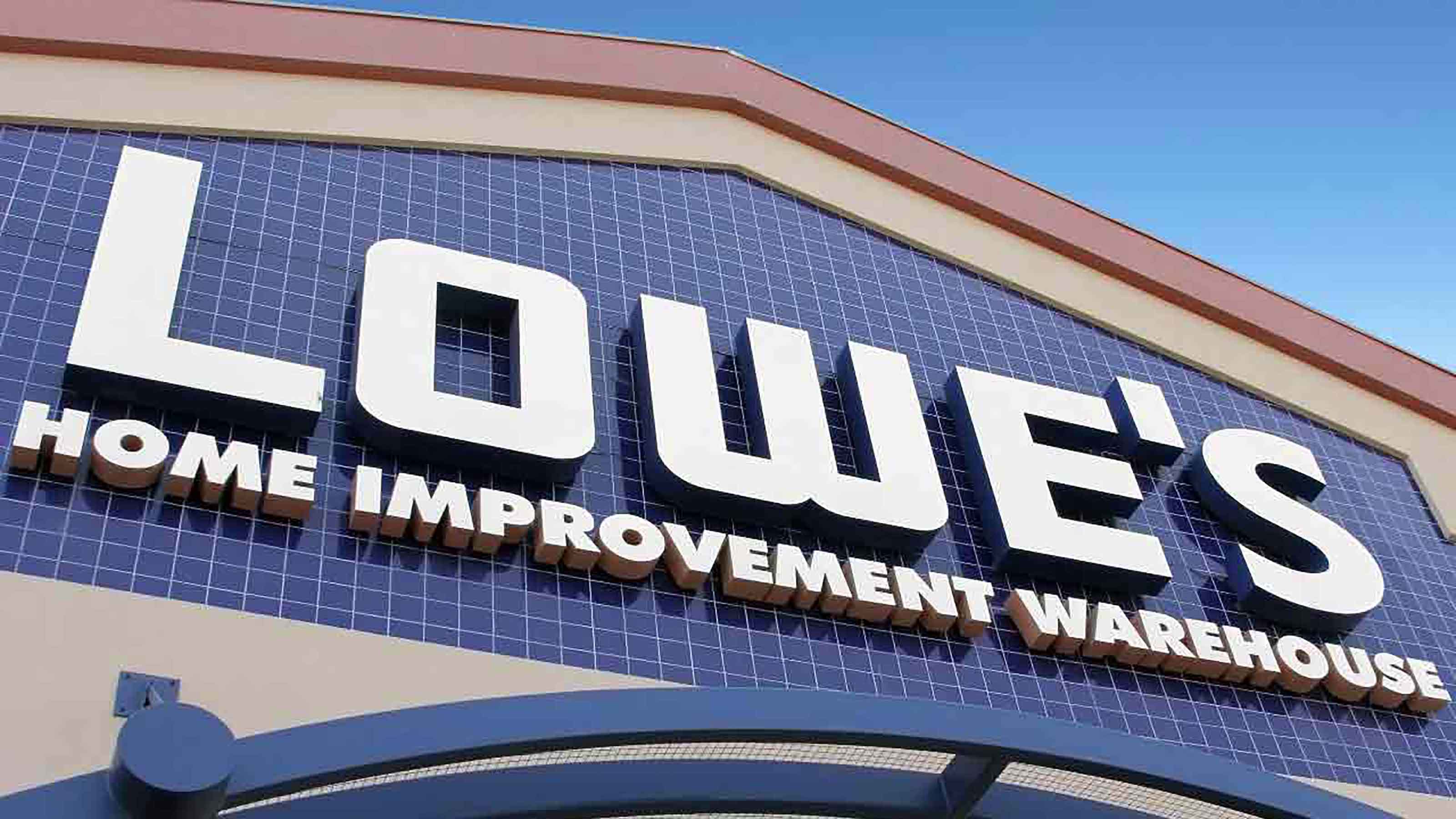
Lowe's
- Market value: $114.4 billion
- Dividend yield: 2.4%
- Consecutive years of dividend increases: 48
Lowe's (LOW, $179.06) operates nearly 2,000 home improvement stores across the U.S. and Canada, serving approximately 19 million customers per week.
Compared to its principal competitor Home Depot, Lowe's is more focused on the professional contractor segment. This group typically makes significantly larger purchases per transaction than DIY customers and are thus a more lucrative business segment that can support higher margins. These contractors represent only about 25% of LOW's sales at present, but the company is rolling out new brands and products as well as cloud-based design tools targeting the professional contractor segment.
Lowe's April quarter sales came in 3% lower than last year and comparable store sales fell 4%. Still, earnings per share rose 9% as a result of margin improvements and share repurchases. The company is guiding for comparable store sales to be roughly flat in fiscal 2022, while EPS will arrive between $13.10 and $13.60, up 11% compared to last year. Some of 2022's EPS gains will come from $12 billion of share repurchases that LOW's expects to complete this year.
Signaling the strength of its cash flows, Lowe's hiked its cash payout by 31% in May, marking the 48th consecutive year of dividend growth. The retailer's low 26% payout ratio provides great flexibility for share repurchases, dividend hikes and investments to drive business growth.
Lowe's was trading at 52-week lows in June amid expectations that rising interest rates would dampen housing demand. While the shares have come off this bottom, they are still down nearly 31% for the year-to-date.
However, Wells Fargo analyst Zachary Fadem recently reiterated an Overweight (Buy) rating on LOW, saying the stock could be a defensive play if there is recession.
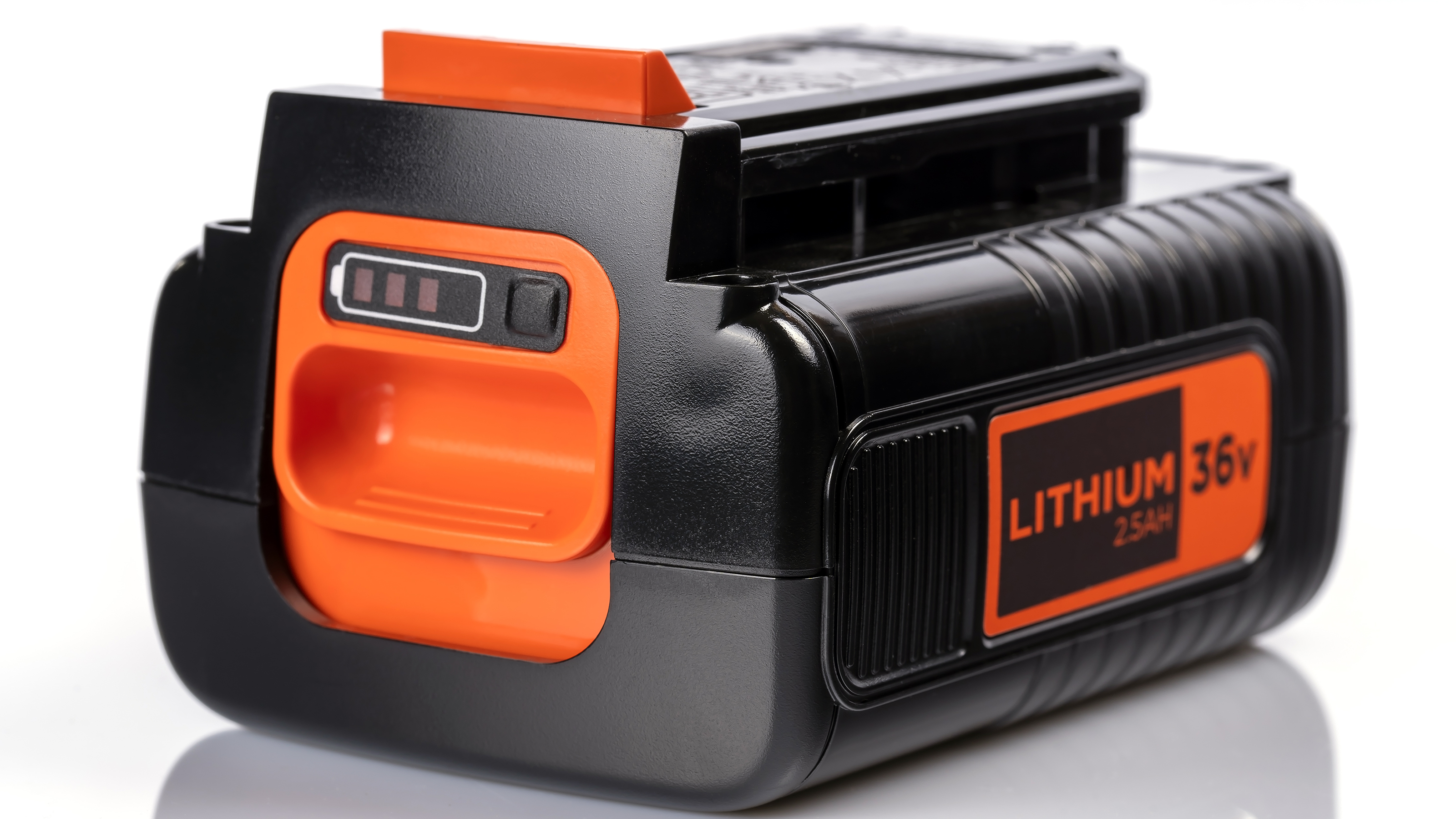
Stanley Black & Decker
- Market value: $16.7 billion
- Dividend yield: 3.0%
- Consecutive years of dividend increases: 54
With revenues last year exceeding $15.6 billion, Stanley Black & Decker (SWK, $110.91) ranks as the global leader in outdoor power equipment and power tools, hand tools and engineered fasteners. The company has built its worldwide franchise around well-known brand names like DeWalt, Craftsman, Lenox and Troy-Bilt, along with its familiar Stanley and Black & Decker brands.
The company aims to deliver 10%-12% annual sales and EPS growth over the long term via a strategy of promoting higher-growth, higher-margin businesses, making acquisitions and expanding in emerging markets. The successful implementation of these strategies has already resulted in EPS gains averaging nearly 25% annually over the past three years.
In its March quarter, SWK grew revenues 20% and adjusted EPS came in well above analysts' consensus estimate. The company is guiding for mid-20% revenue growth in 2022 and free cash flow ranging from $1.0 billion to $1.5 billion. However, the company recently cut its EPS forecast due to closing its Russia business and divesting its automatic door business. Shares fell in response to the reduced EPS guidance.
Stanley Black & Decker typically allocates half of its free cash flow for acquisitions and returns the other half to investors via dividends and share repurchases. So far in 2022, the company has spent $2.3 billion on stock buybacks that have reduced the number of shares outstanding by nearly 8%. The company is as steady as Dividend Aristocrats go, having grown dividends 54 years in a row while maintaining a low 30% payout.
Baird analyst Timothy Wojs reiterated his Outperform (Buy) rating on SWK shares in June. He anticipates the company's plan to reallocate $250 million to shore up supply chains will create $1 billion of additional value over the next five years. Wojs also cited the company's Flexvolt product line and DeWalt Powerstack battery platform as key growth catalysts.
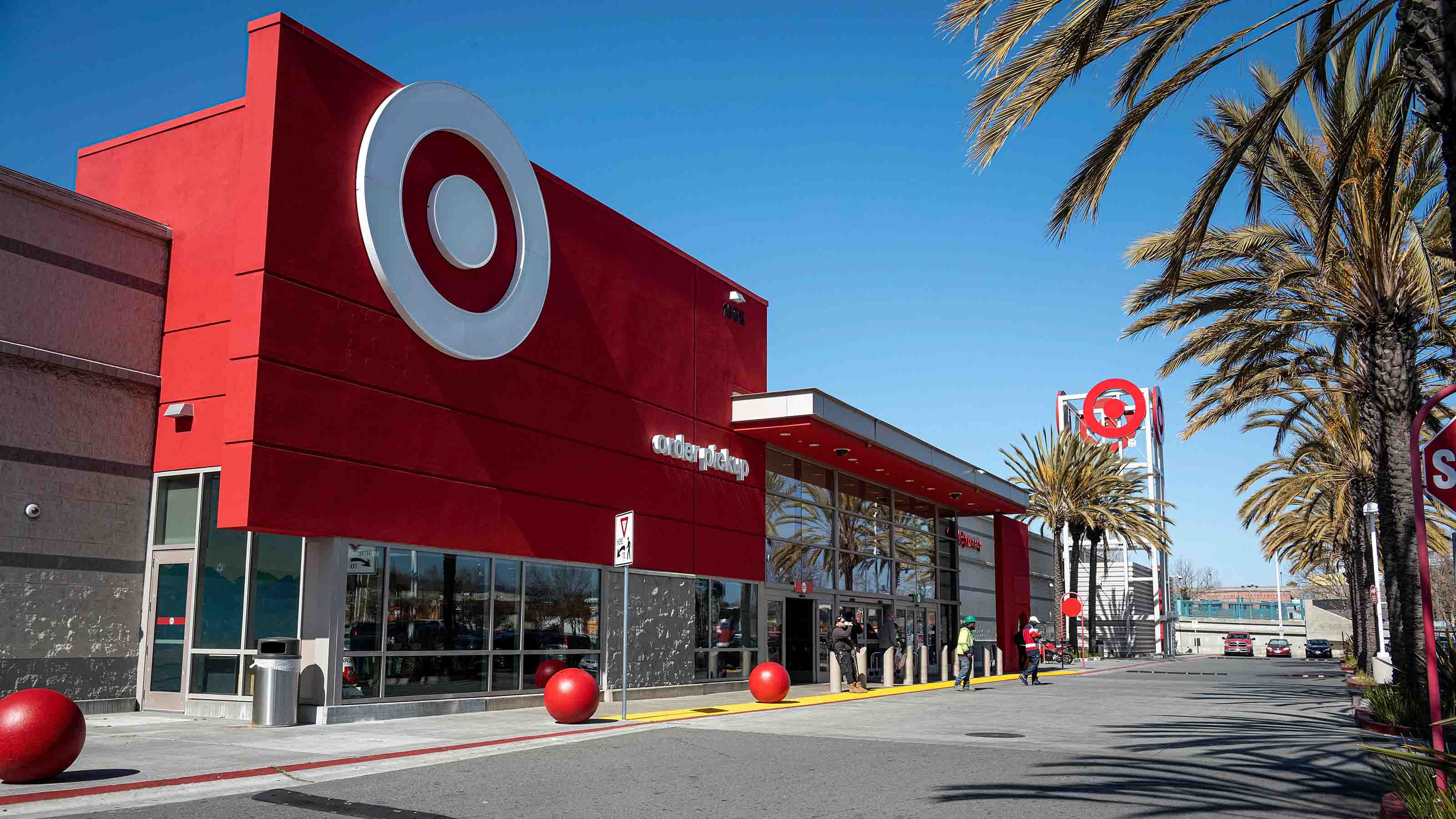
Target
- Market value: $67.1 billion
- Dividend yield: 3.0%
- Consecutive years of dividend increases: 51
Big-box discount merchandiser Target (TGT, $144.81) is the eighth largest retailer in the U.S. and owns more than 1,900 stores across all 50 states and Washington, D.C. It is estimated that 75% of the U.S. population lives within 10 miles of a Target store.
Target sells groceries, apparel, household goods and electronics. During the pandemic, TGT was a top stock as Americans flocked to big-box stores to load up on food and household essentials.
After a similarly strong financial 2021 performance, Target encountered headwinds this year due to overestimating the strength of consumer demand. This left the company with excess inventories of goods that it is now liquidating at a discount.
TGT shares plummeted in May as a result of March quarter adjusted EPS that widely missed estimates and a reduction in 2022 guidance. They are now down 37% for the year-to-date. Plus, the stock is trading at 12 times earnings, which is a 30.5% discount to its five-year average.
The company now expects 2022 revenue growth in the low- to mid-single digit range and operating margins ranging around just 2% in the June quarter due to inventory selling. However, Target anticipates margins rising to 6% in the second half of 2022.
Despite current headwinds, TGT offers a solid long-term performance showing 20% annual EPS growth over five years and nearly 11% growth over 10 years. Like several of the Dividend Aristocrats featured here, the company is also a Dividend King. And in June, it rewarded investors with its 51st consecutive year of hiking dividends, increasing its cash payout by 20%.
With payout set at an exceptionally modest 28%, it seems likely that TGT can continue growing its dividend even if the retail environment softens in the near term.
While BofA Global Research analyst Robert Ohmes recently downgraded shares to Neutral (Hold) due to recession fears, Barclays analyst Karen Short maintained an Overweight (Buy) rating, calling TGT a best-in-class retailer.
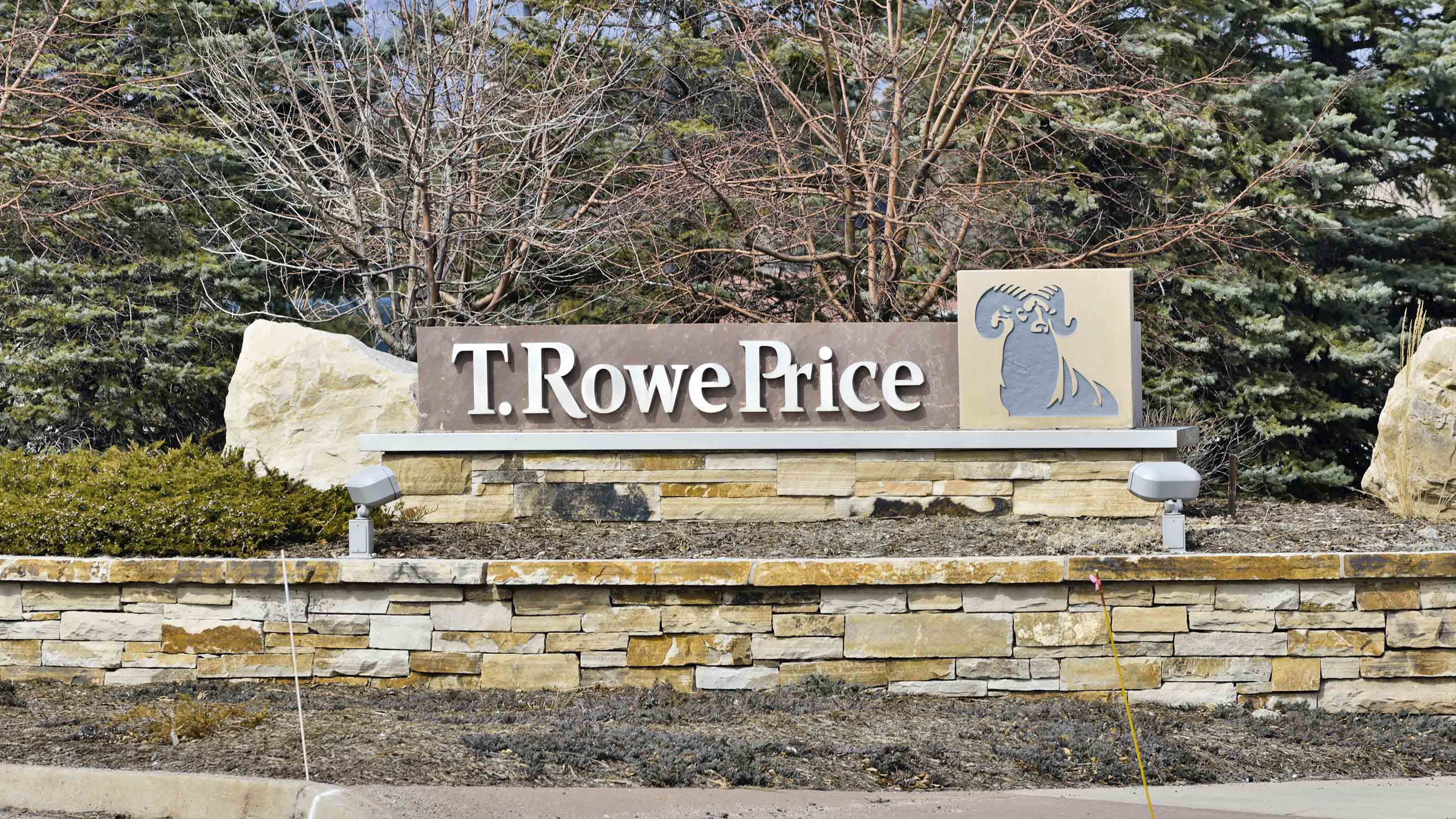
T. Rowe Price Group
- Market value: $26.6 billion
- Dividend yield: 4.1%
- Consecutive years of dividend increases: 36
Asset managers like T. Rowe Price Group (TROW, $116.82) have taken an outsized pounding during this year's bear market, but this high-quality mutual fund giant has compiled a solid track record of outperforming its industry peers.
Over the past five years, 68% of T. Rowe Price funds have outperformed competitor funds and 79% have outperformed over a 10-year time frame. This led to TROW being named the best overall large U.S. fund manager by Refinitiv Lipper in 2022.
T. Rowe Price provides a broad array of actively managed mutual funds, advisory services and account management for individual and institutional investors and retirement plans. Since its funds are actively managed, TROW may gain a competitive advantage from investors switching from passive to more defensive actively managed funds during a prolonged bear market.
The firm's assets under management totaled $1.4 trillion in May, down from $1.7 trillion at the beginning of the year. Still, this is large enough to rank T. Rowe Price as a top 20 global asset manager.
The company's net revenues rose 2% year-over-year during the March quarter, but EPS declined 24% as a result of client outflows from funds and the company's decision to waive money market advisory fees in order to maintain positive yields for its investors.
As far as Dividend Aristocrats go, the long-term financial performance of this one has been stellar, with EPS rising an average of 19% annually over five years and 15% over 10 years. And this has been accompanied by 36 consecutive years of rising dividends. Dividend growth has averaged more than 15% annually over five years, and the firm's low 36% payout provides a safety margin if earnings decline in 2022.
The financial stock has rarely been this affordable, recently trading at 11 times forward earnings – a nearly 23% discount to the its average historic multiple. In addition, shares currently yield a rich 4.1% yield, which is nearly twice their five-year average yield.
Analysts are upbeat toward the stock, too. In May, Goldman Sachs highlighted TROW as one of its top picks for high dividend growth and yield in the financial sector.
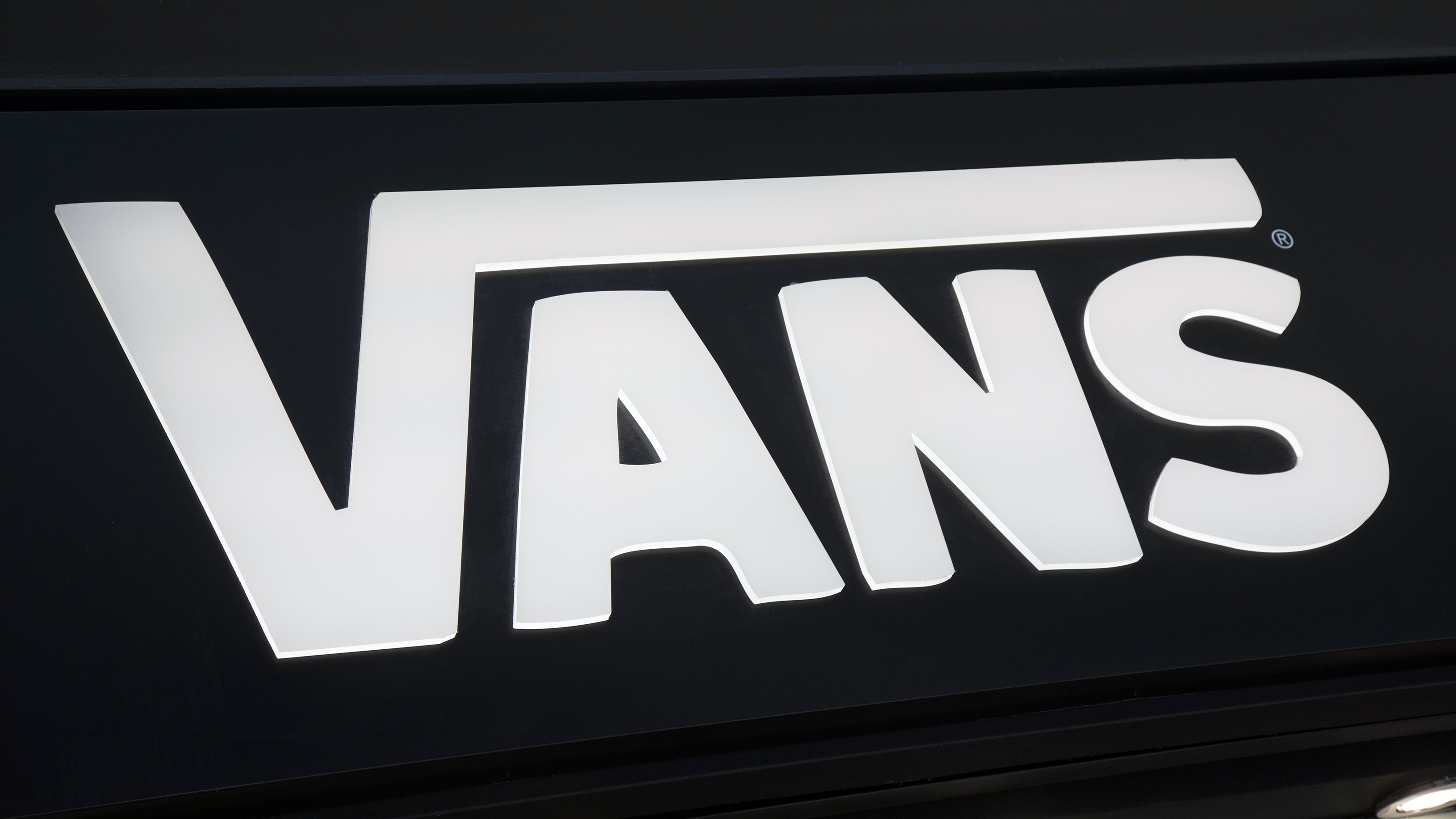
V.F. Corp
- Market value: $17.4 billion
- Dividend yield: 4.5%
- Consecutive years of dividend increases: 49
V.F. Corp (VFC, $44.70) is a global leader in branded apparel and footwear. Its iconic Timberland, North Face and Vans brands comprise almost 80% of total sales.
Fears of a looming recession that will erode consumer spending have hurt VFC shares this year, with the stock down almost 40% so far in 2022. This is in spite of the resiliency V.F. Corp demonstrated during its most recent quarter ending in April.
Over the three-month period, the apparel manufacturer saw sales improve 12% over the year-ago period, led by a 26% gain for its North Face brand. Even better, significant improvement in the company's operating margins drove a 32% increase in EPS.
Fiscal 2022 results were also impressive with sales rising 28% year-over-year and adjusted EPS up 143%.
Management is guiding for 7% revenue gains and 10% EPS growth in fiscal 2023. This growth is expected to come primarily from emerging brands such as Icebreaker, which brought in record revenue in VFC's fiscal 2022, and Smartwool, which produced 40% sales growth last year.
VFC has delivered 49 consecutive years of dividend growth, averaging 5% annual hikes over the past five years. Share price weakness in 2022 has made VFC one of the most deeply discounted Dividend Aristocrats – and pushed the retail stock's dividend yield up to 4.5%, which is roughly twice its five-year average yield. The company also offers a secure 64% payout ratio and A-rated balance sheet.
In May, Credit Suisse strategist Jonathan Golub recommended VFC on a list of his top 25 stocks that have declined more than the market while improving their EPS this year.
Profit and prosper with the best of Kiplinger's advice on investing, taxes, retirement, personal finance and much more. Delivered daily. Enter your email in the box and click Sign Me Up.

Lisa currently serves as an equity research analyst for Singular Research covering small-cap healthcare, medical device and broadcast media stocks.
-
 Quiz: Do You Know How to Avoid the "Medigap Trap?"
Quiz: Do You Know How to Avoid the "Medigap Trap?"Quiz Test your basic knowledge of the "Medigap Trap" in our quick quiz.
-
 5 Top Tax-Efficient Mutual Funds for Smarter Investing
5 Top Tax-Efficient Mutual Funds for Smarter InvestingMutual funds are many things, but "tax-friendly" usually isn't one of them. These are the exceptions.
-
 AI Sparks Existential Crisis for Software Stocks
AI Sparks Existential Crisis for Software StocksThe Kiplinger Letter Fears that SaaS subscription software could be rendered obsolete by artificial intelligence make investors jittery.
-
 Stocks Make More Big Up and Down Moves: Stock Market Today
Stocks Make More Big Up and Down Moves: Stock Market TodayThe impact of revolutionary technology has replaced world-changing trade policy as the major variable for markets, with mixed results for sectors and stocks.
-
 Small Caps Step Up, Tech Is Still a Drag: Stock Market Today
Small Caps Step Up, Tech Is Still a Drag: Stock Market TodayEarly strength gave way to AI skepticism again as a volatile trading week ended on another mixed note.
-
 AI Unwind Takes 2% Off the Nasdaq: Stock Market Today
AI Unwind Takes 2% Off the Nasdaq: Stock Market TodayMarkets are paying more and more attention to hyperscalers' plans to spend more and more money on artificial intelligence.
-
 Strong Jobs Report Leaves Markets Flat: Stock Market Today
Strong Jobs Report Leaves Markets Flat: Stock Market TodayInvestors, traders and speculators are taking time to weigh the latest labor market data against their hopes for lower interest rates.
-
 Dow Hits New High Ahead of January Jobs Report: Stock Market Today
Dow Hits New High Ahead of January Jobs Report: Stock Market TodayA weak reading on December retail sales was in focus ahead of Wednesday's delayed labor market data.
-
 Tech Stocks Fuel Strong Start to the Week: Stock Market Today
Tech Stocks Fuel Strong Start to the Week: Stock Market TodayThe blue-chip Dow Jones Industrial Average extended its run above 50,000 on Monday and there are plenty of catalysts to keep the 30-stock index climbing.
-
 Dow Adds 1,206 Points to Top 50,000: Stock Market Today
Dow Adds 1,206 Points to Top 50,000: Stock Market TodayThe S&P 500 and Nasdaq also had strong finishes to a volatile week, with beaten-down tech stocks outperforming.
-
 Stocks Sink With Alphabet, Bitcoin: Stock Market Today
Stocks Sink With Alphabet, Bitcoin: Stock Market TodayA dismal round of jobs data did little to lift sentiment on Thursday.
